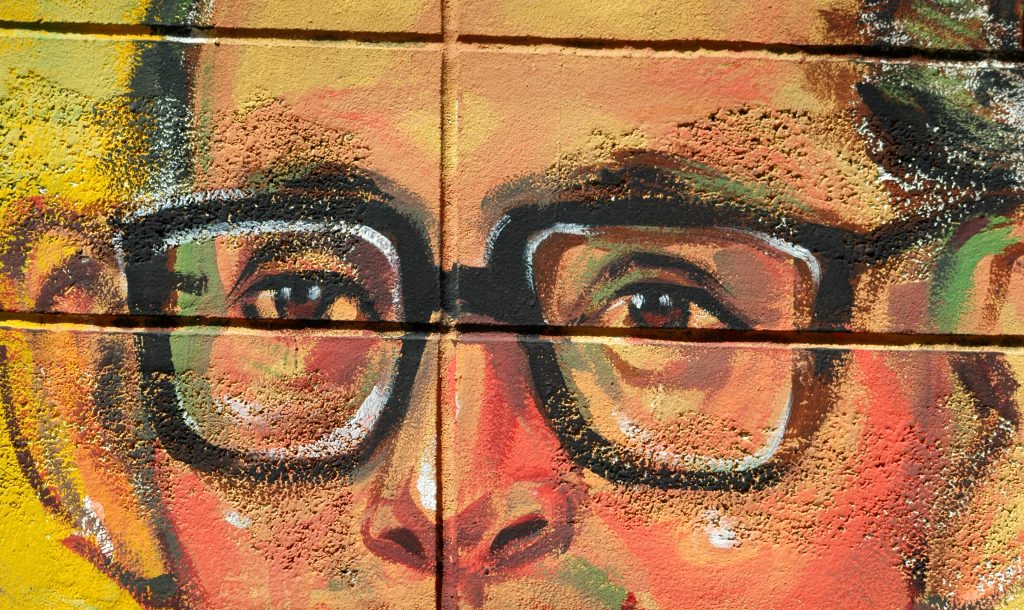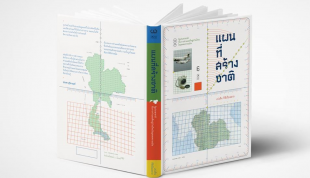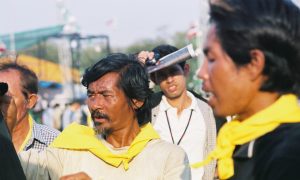Dictionaries are historical documents in addition to their lexical functions. Ever since Thailand’s 1932 constitution established the Office of the Royal Society (formerly known as the Royal Institute), the Royal Society has played a crucial role in standardising and revising language to reflect and shape changing nationalist ideologies. While governments since at least Rama VI have defined Thainess by the ideology of nation-religion-king, comparing successive editions of the Royal Institute Dictionaries show that the meanings of these words have not been constant.
The Royal Institute Dictionary defines “monarchy” as…
Every edition of the Royal Institute Dictionaries have included certain terms to designate the monarchy including kasat (king), chao chee wit (lord of life), phra chao phaen din (lord of the country), implying the prestige and grandiose nobility of the king who can divine people’s destiny as devaraja. Bar some minor revisions, their core definitions have always remained the same: “word signifying King”.
But over the years, the dictionaries have expanded to include even more terms denoting kingship. Nai luang (colloquium implying the beloved king) was introduced in the 2nd edition of the dictionaries. Chao pho luang (word signifying king used by highland ethnic groups) was added in the latest (4th) edition published in 2011 (B.E. 2554) . These terms and definitions steadily describe the perfect portrait of kingship.
Yet Thailand is facing a social crisis where royal hegemony is declining. The most recent edition of the Royal Institute Dictionary was published on the auspicious occasion of the late King Bhumibol’s 72nd birthday, part of broader efforts to revive monarchical nationalism.
By tracking how the dictionaries have defined monarchy, we can witness discourses of divine monarchy (defined by extraordinary powers) evolve into discourses of a ‘righteous king’ (defined by a commitment to the people). Usually, there are strict criteria for keeping and moving words from the Royal Institute Dictionary, and it is quite a process to introduce a new word. Proposed words are included in the New Word Dictionary, before revision committees decide whether the entries deserve a place in the revised Royal Institute Dictionary.
Yet new vocabularies describing King Bhumibol’s royal duties effortlessly find room in each edition. In the most recent volume, for instance, ‘sufficiency economy’ is defined as:
a philosophy by King Bhumibol granted as a practical guideline for family, community and government organisations. It is a method based on moderation, prudence, generosity, reasoning and social immunity, one that uses knowledge and virtue as guidelines in living in order to overcome crisis, achieve security and survive in the midst of globalisation and changes.
Note that the current edition of the dictionary presents 12 other terms describing the monarch’s royal duties, inventions and projects, describing the king as an actor who invents, develops and devotes himself to the development of agriculture, science, economy and the environment. The entries include kang han chaipattana (the Chaipattana aerator), kaem ling (the Monkey’s Cheeks water retention areas), klaeng din (aggravating soil to improve its acidity), krong karn taam phra racha damri (royal initiative projects), trisadee mai (“new theory” referring to an integrated and sustainable agricultural system) and fon luang (royal rainmaking projects).
The Royal Institute Dictionary defines “nation” and “religion” as…
The definition of a nation is never static, but must be changed, adapted or revised according to the demands of the times.
The 1950 (B.E. 2493) edition of the Royal Institute Dictionary presented one definition. The primordial flavour—“a group of people who believe they are ancestrally related”—reflected a need for stability after the great political reforms of 1932 and the horizon of further political turmoil involving an outside communist threat, the re-emergence of a dictatorial regime and politically-active students inspired by socialist ideology. Social order demanded an ideology that emphasised common roots: here, the nation is unchangeable and inherited by descent.
Thailand Mapped กำเนิดเมืองไทยจากแผนที่
‘Thainess’ only truly laid down its roots at the end of the 1970s. ความเป็นไทยหรือการเป็นคนไทยเพิ่งจะลงหลักปักฐานจริงๆก็ในปลายทศวรรษ 1970 เท่านั้นเอง
While the Royal Institute Dictionaries have constantly revised the definition of “nation”, the definition of “religion” has curiously remained unchanged since the first edition: “human beliefs which present the origin and the end of the world, the ultimate truth, morality, rituals and teachings according to these beliefs”. Perhaps then religion as a “national invention” functions to stabilise evolving definitions of “nation” and “monarchy”. Other terms related to religion include phi thee kam (worship, religious practice or custom), see la tham (morality), seel (precept), boon (merit), bap (sin), dee (good deed) and chua (bad deed, violation of morality or custom).
 Facebook
Facebook  Twitter
Twitter  Soundcloud
Soundcloud  Youtube
Youtube  Rss
Rss 



